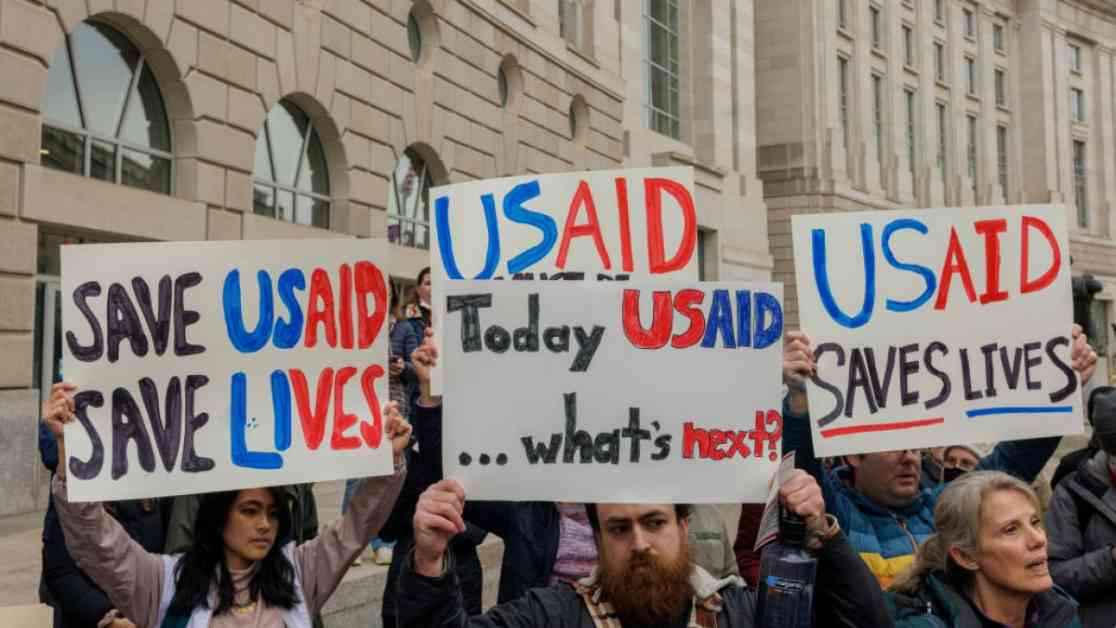USAID Direct Hires Face Administrative Leave Amid Political Controversy
The U.S. Agency for International Development (USAID) made headlines recently with the announcement that nearly all direct hires stationed worldwide would be placed on administrative leave shortly. This move, set to take effect before midnight on Friday, aims to exempt only specific personnel responsible for critical mission functions, core leadership roles, and specially designated programs. Individuals expected to continue working will receive notifications by 3 p.m. on Thursday, with provisions being made for non-U.S.-based staff to return to the United States if their contracts are deemed non-essential. The agency’s decision, as communicated on its official website, follows a series of pointed criticisms from the Trump administration, including direct remarks from President Donald Trump himself.
The Controversy Unfolds
The unfolding drama surrounding USAID began with President Trump’s executive order freezing foreign aid funding for a minimum of 90 days, setting off a chain of events that led to the abrupt closure of the agency’s headquarters. Secretary of State Marco Rubio stepped in to take charge of USAID, subsequently appointing State Department official Pete Marocco to fill a key leadership role. The move sparked outrage among many Democratic lawmakers, who decried the decision as potentially illegal, highlighting the agency’s establishment under a law passed by Congress. Notably, some members of the Republican party also raised concerns over the situation.
Historical Context and Legislative Implications
Established by President John F. Kennedy in 1961 through an executive order, USAID was mandated by Congress under the Foreign Assistance Act to oversee foreign aid programs. Subsequent legislation during Bill Clinton’s presidency in 1998 further solidified USAID as an independent entity separate from the State Department. Recent reports from the Congressional Research Service suggest that President Trump lacks the authority to dismantle USAID unilaterally, emphasizing the need for Congressional action to effect any significant changes. In the fiscal year 2023, USAID managed over $40 billion in combined appropriations to approximately 130 countries, with notable recipients including war-torn nations like Ukraine, Somalia, Ethiopia, Jordan, and Congo.
Expert Insights and Global Impact
Advocates for USAID’s humanitarian efforts stress the agency’s role in providing vital aid to over 100 countries, often with a minimal impact on the overall federal budget. It is estimated that USAID’s contributions serve as a crucial lifeline for millions of individuals worldwide, representing a cornerstone of U.S. foreign assistance policy. As the agency navigates through a period of uncertainty and administrative changes, concerns arise regarding the potential disruption to global delivery of essential supplies like food and medicine. The repercussions of these developments could have far-reaching implications for vulnerable populations relying on USAID’s support.
Moving Forward
In the midst of political upheaval and shifting priorities, the future of USAID remains uncertain. As policymakers, lawmakers, and agency personnel grapple with the implications of recent events, the fundamental mission of delivering aid and fostering international cooperation hangs in the balance. The unfolding narrative surrounding USAID underscores the complexities of foreign assistance programs and the delicate balance between political agendas and humanitarian imperatives. With the stakes high and tensions mounting, the coming days will undoubtedly test the resilience and adaptability of USAID’s dedicated workforce and partners worldwide. As the story continues to evolve, one thing remains clear – the impact of USAID’s work transcends politics and borders, embodying a spirit of compassion and solidarity in an ever-changing world.


